Off Street, Shared & Private – The Rules for Parking in Tel Aviv
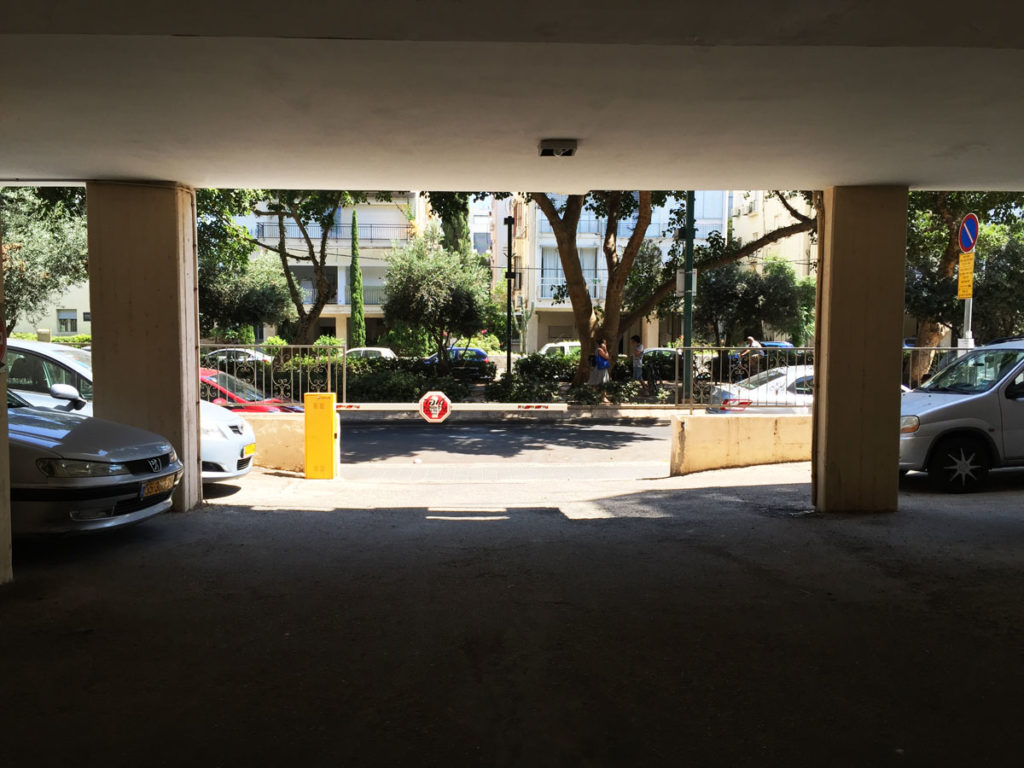
Unless you commute in and out of the city on a daily basis and happen to work outside of the Gush Dan area where public transportation is nowhere to be found within a kilometer, personally, I don’t see why one should own a car when living in Tel Aviv. (Hey, but that’s me)
Although limited during the weekends, and perhaps the public transportation system in Israel is not as sophisticated as one would expect, Tel Aviv happens to be one of the very few cities in Israel where public transportation actually runs 24/7, and with many taxis and bicycle lanes – the hassle of needing to deal with where or when to park, can and must be avoided.
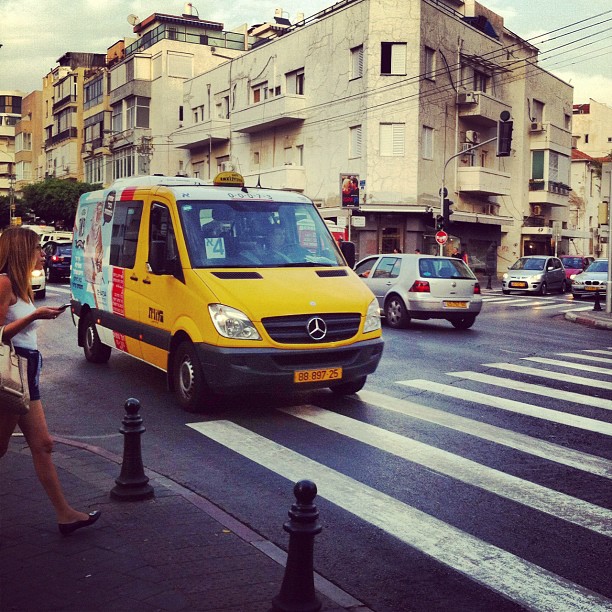
Tel Aviv is a relatively small, street-safe and easy walking city, offering convenience and amenities every hour of the day.
But, if you do own a car and don’t happen to have a private parking spot, then here’s what you need to know for safely parking your car in the city.
The first thing you should do is register for a street parking permit at the Tel Aviv Municipality.
You can apply for a free parking badge online through the Tel Aviv Municipality and receive it directly to your mail post.
Criterias for requesting a parking badge are:
- Current address as shown on your Tehudat Zehut
- Car ownership
- Arnona registration
- Valid car license.
If you meet all the criterias listed above, then you won’t need to provide any documents to prove your eligibility for a parking badge – the information will be checked through the Tel Aviv Municipality system.
As Central Tel Aviv is divided into 4 zones, depending on where you live, you will be given a parking badge zone to stick onto your windshield.
Your parking badge allows you to park your car for free within the regulated blue & white pavement markings around Tel Aviv and in accordance with the traffic sign posted.
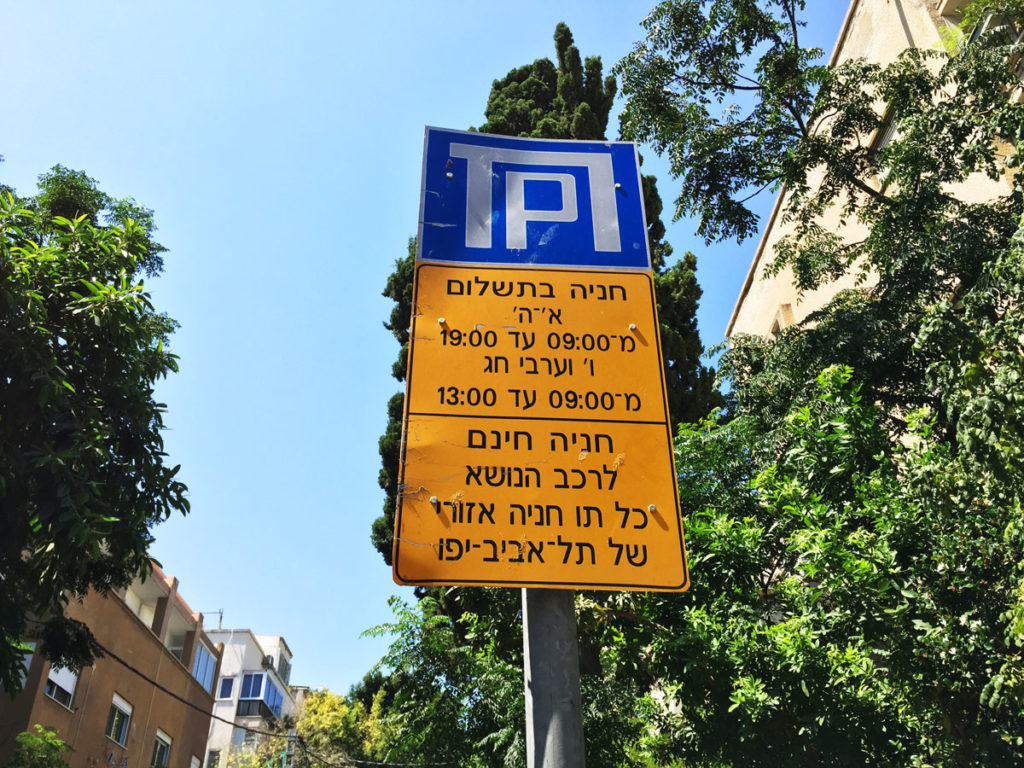
Traffic signs are stationed along the streets of Tel Aviv, permitting validated zone residents to park freely and is only permitted to vehicles with the appropriate zone badge. Parked vehicles that are not of residents within the designated zone, are prone to a parking fine of 100 NIS.
Shared Parking:
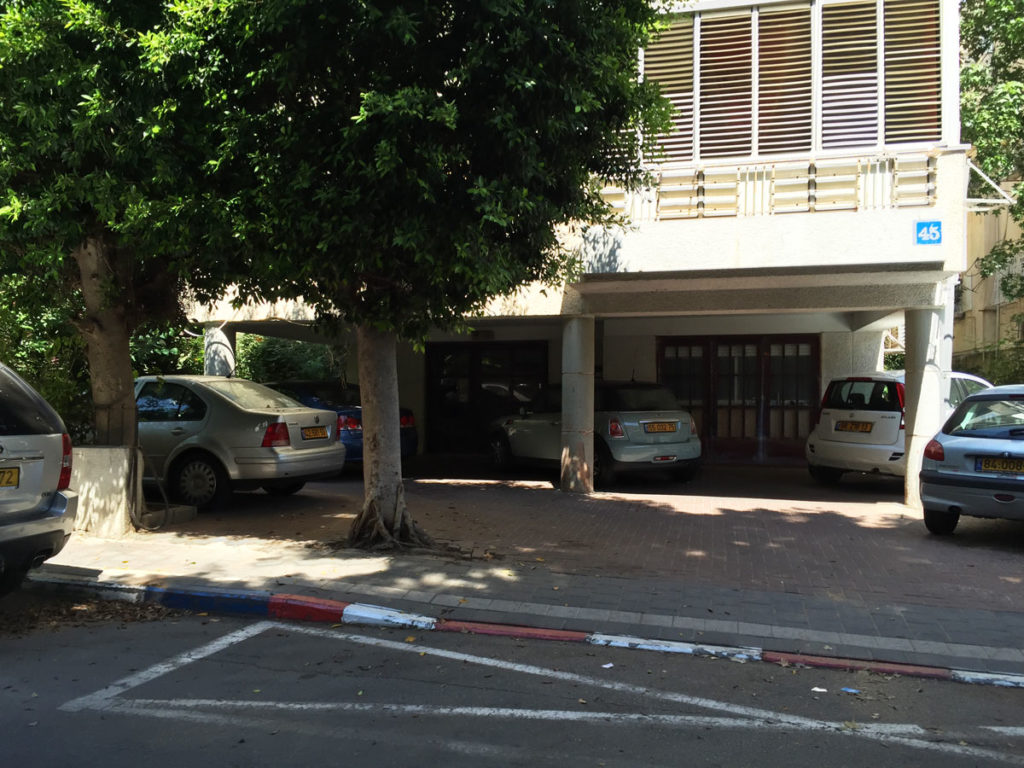
The idea of shared parking is based on the “first-come-first-serve” rule. If there’s a reasonable number of apartments in the building in comparison to the amount of parking spots available, and if you’re in good terms with your neighbors, than having a shared parking in the building is a great solution and definitely much better than having no parking at all.
But, if in the apartment building you live in, there happens to be 14 apartments with only 4 spots assigned, then you’re better of coming to terms with driving around the block before finding a suitable spot to park your car.
Good neighborliness is very important in Tel Aviv, and there’s a lot to benefit from having good relationships with your neighbors, especially if you’re new to Tel Aviv and don’t have much family or friends. My advice? Keep an eye on who your neighbors are and do your best to be kind to them.
Private Parking:
Ah! The Holy Grail of living in Tel Aviv!
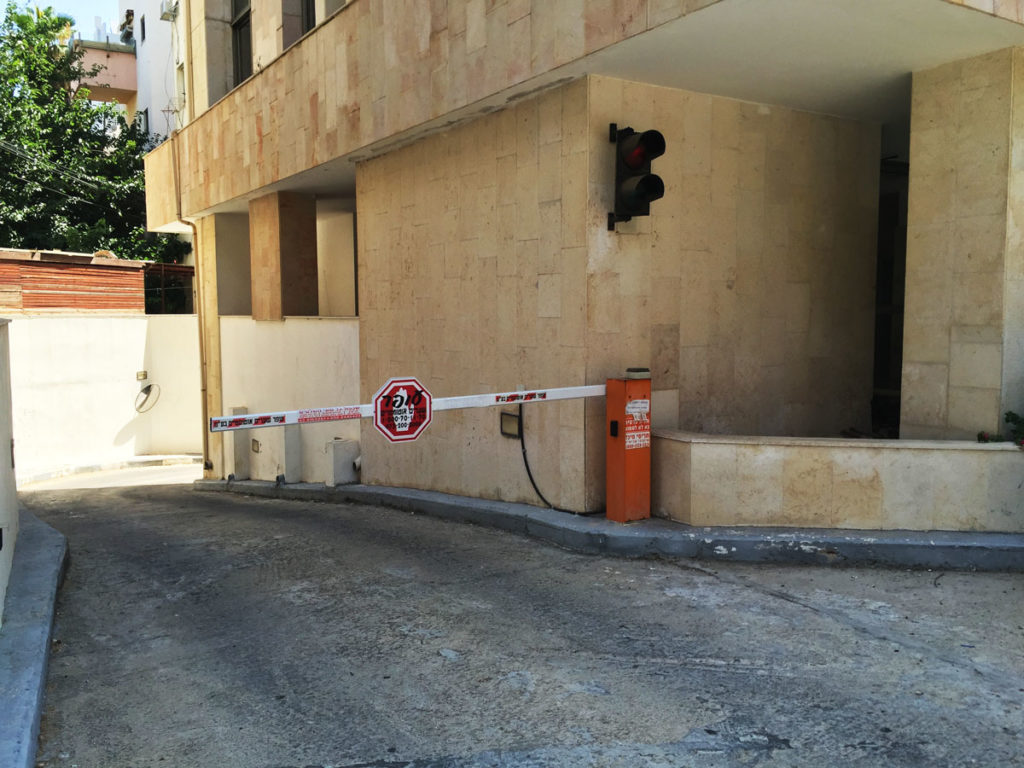
Every new building in Tel Aviv has a designated parking lot assigned for it’s residents. In renovated buildings however, hence Tama 38 buildings, if the building has sufficient building rights, than a parking lot can be assigned if not to all the apartments in the building, then at least to a few of the apartments, where the entrepreneur generally reserves parking spaces to the upper floor apartments.
There are all kinds of parking lots in new apartment buildings across the city, but the one you must pay attention to is “lift-parking”.
Lift-parking came from the need of finding parking solutions to buildings that have limited buildings rights or in generally have smaller plots. Lift-parking is a great solution in such cases, however, they are limiting for those owning bigger cars, as they are built for most standard family cars.
If you’re moving to Tel Aviv and thinking of buying a car, my advice is go for a compact urban car. It will save you so much hassle.
Elevator
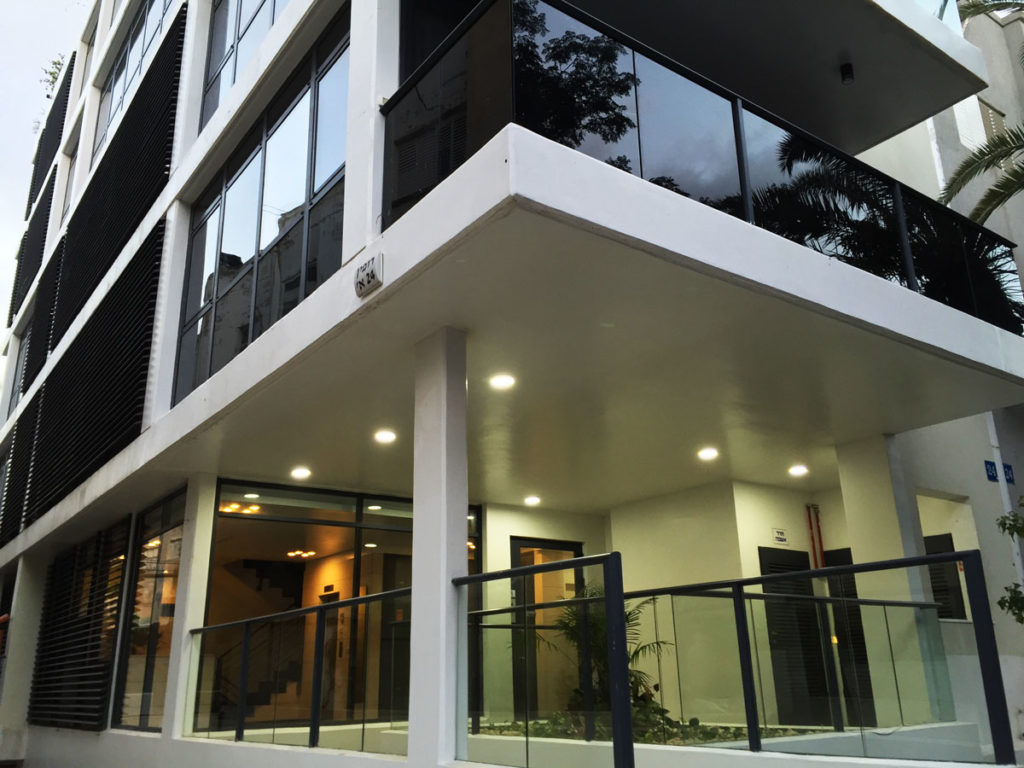
Renovated buildings offer a more modern look and feel and offer a secured entrance lobby – some will find this shocking, but there are quite a lot of buildings in Tel Aviv who do not come with an entrance door (!). Many of the old- neglected Bauhaus buildings in the southern parts of the city, as well as some in Central Tel Aviv almost never come with an entrance door, and even if they do come with one, chances that they actually close, are slim to none.
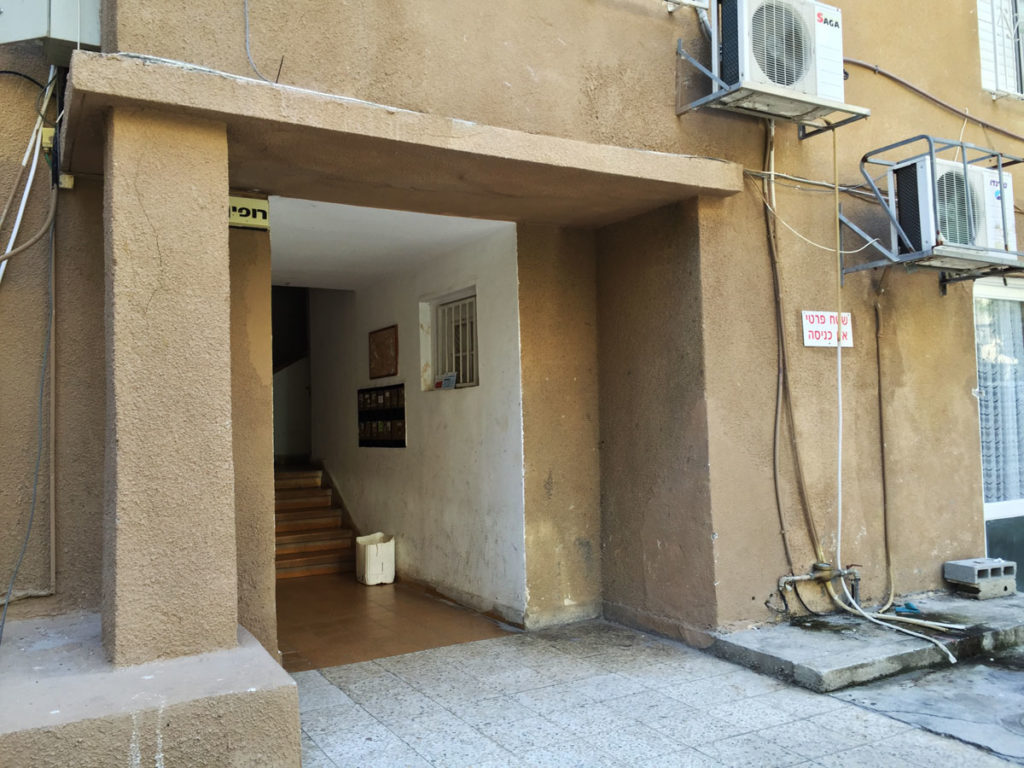
Unless a building has been originally built with an elevator, you will find added elevators where in some cases will be big enough to fit two-slim persons with little to no room for anything else. If you happen to view an apartment in an apartment building that has a tight elevator, then know that the elevator was added some time ago. Elevator standards have changed, and in recent years only elevators that can fit wheelchairs are installed. So, if the apartment building you intend to live in does not have sufficient space to fit a proper size lift, then there are other solutions to be found, if and when discussing the building’s renovation.
Another important thing to note is an elevator that stops at every full floor. Many foreigners find this to be odd or inconvenient when their apartment happens to reside on a half-floor, and this may cause a concern with having to carry groceries, luggage or a baby stroller another half a flight of stairs.
This, of course, is a matter of self preference and convenience, and many won’t mind this, but must be taken into consideration, none the less, when searching for an apartment in Tel Aviv.
